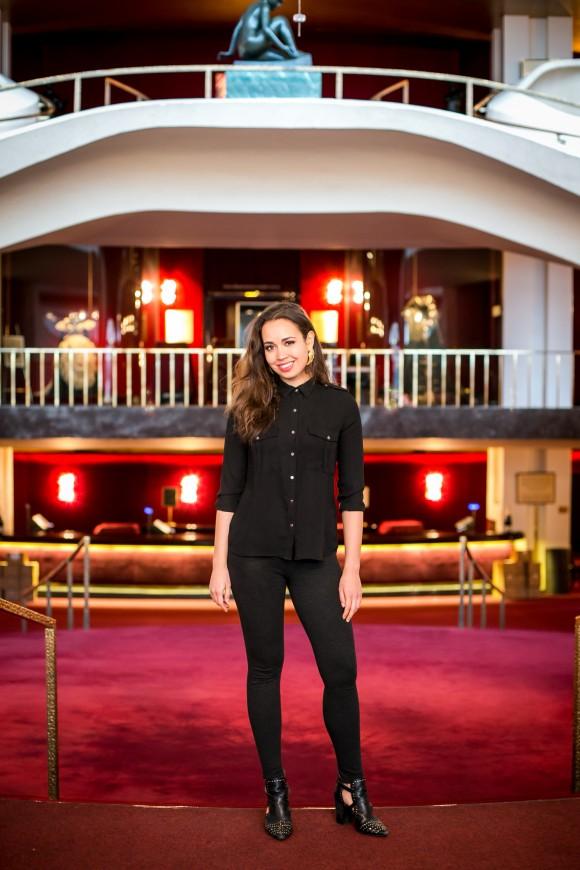NEW YORK—“Opera singers over the years are becoming better actors, because we can no longer hide away from [being seen on] DVDs, having things on YouTube, having things filmed. We can’t escape that; our world is now dedicated to this digital media,” American soprano Nadine Sierra said. “Because of that, people want to see more; they don’t just want to hear it. It goes over the line of singing and being heard, to being watched and understood.”
Sierra, 28, is one of many young sopranos performing at the Metropolitan Opera who have been starring in shows internationally in the past few years, and even among these, she has had standout moments.

Soprano Nadine Sierra in the lobby of Lincoln Center's Metropolitan Opera House in New York on Feb. 28, 2017. Benjamin Chasteen/Epoch Times






